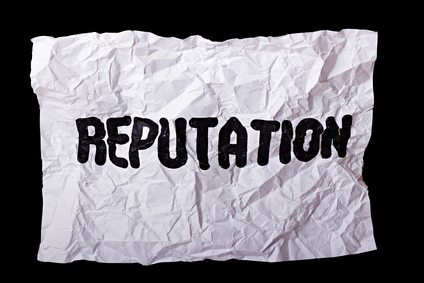Reputation is one of the biggest and most important assets a company has. When a company’s positive stories are reported in media, or when people have good things to say about your start-up, it can have a huge positive impact, leading to success – like increased customer inquiries, increased profit margins and expanded operations.
But, after a PR disaster, the reputation can easily be destroyed – and sometimes, it may be nearly impossible to rebuild. That’s why it’s essential for businesses, specially start-ups, to continually assess their reputational risks.
Reputation is complex, difficult to measure, hard to predict – often a result of strategic and operational decisions – and influenced by factors outside of an organisation’s direct control.
On many occasions, we have noticed that organisations respond to a crisis or a reputation threat, with a reactionary or a head-on approach. If reputational threats are not addressed directly, no matter how synchronised the crisis response, an organisation runs the risk of turning it to something more serious (or even disastrous!).
Crisis can be an opportunity
A reputational crisis can actually be an opportunity to showcase the business’s core beliefs and values. It starts with building a strong programme and then creating a brand story that resonates with key audiences, deploying the narrative internally and externally.
Reputational risk is one of the biggest strategic risks. How can companies better align reputation management with strategy and decision-making? The reality is that managing brand and reputation is complex, which is why a holistic approach is essential. Organisations that are most effective in managing through a crisis proactively develop a communication plan and stakeholder engagement strategy to ensure that responses and messaging are well-thought out.
Here are some factors that may impact reputation:
- Ethical Lapses
Strong ethics initiatives are essential for any company, and specially so, for start-ups which can ensure that their reputation is not stained. Limited ethics practices can lead to slip-ups and serious judgment errors like accounting fraud. Instances of illegal business activity, get magnified and reported by media fast. Even a minor ethical issue can spiral out of control once the word hits media and can cause serious harm to a company’s reputation in just hours! - Poor Customer Service
Organisations risk damage to its reputation, if consumers are treated poorly. Because companies want current customers to act as brand ambassadors, they need to work hard to consistently improve customer experience and ensure all consumers are well-served. If you are unwilling to provide solutions to fit their needs, or fail to follow up on requests – it may send the wrong message to consumers. A customer’s bad experience to go viral and hinder an organisation’s attempts to improve its reputation. - Low Employee Satisfaction
Ensuring employees are happy isn’t just a way to build up internal culture, it’s also a way to improve a company’s reputation with the external public. Content employees will go out of their way to provide better customer experiences. Brands with good reputations, such as Google and Facebook are known for being some of the happiest places to work. - Data Breaches
Businesses today – especially start-ups, rely on technology and while this may make some processes easier, it carries with it a reputational risk. Data breaches have become more common recently, and we have read about hackers who look to gain access to corporate secrets, financial data, and customer information. As such, it has become imperative for companies to protect digital data.
Some other sources of reputational risks
Several other elements can expose you to the threat of reputational risk:
- Product recalls and quality control errors
- Financial losses and irregularities
- Negative associations with third parties
- Management and governance topics
- Operational crises and events (eg pollution)
- Legal and regulatory investigations
- Health and safety incidents
So, the long and short of it is that organisations must be able to rely on the strength of their reputation – to attract and retain customers, business partners, employees and investors.










Be the first to comment on "What can harm the reputation of a young organisation?"